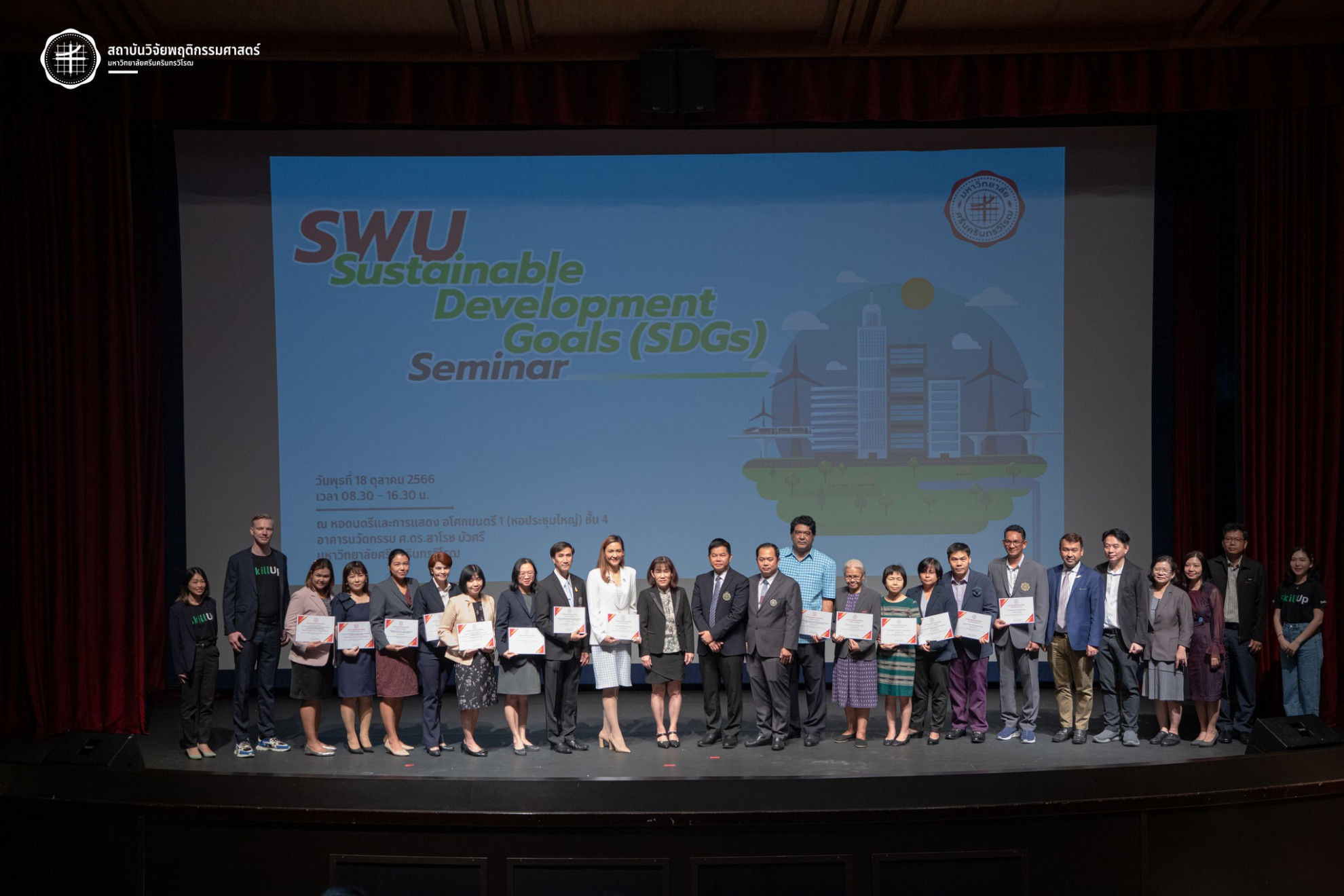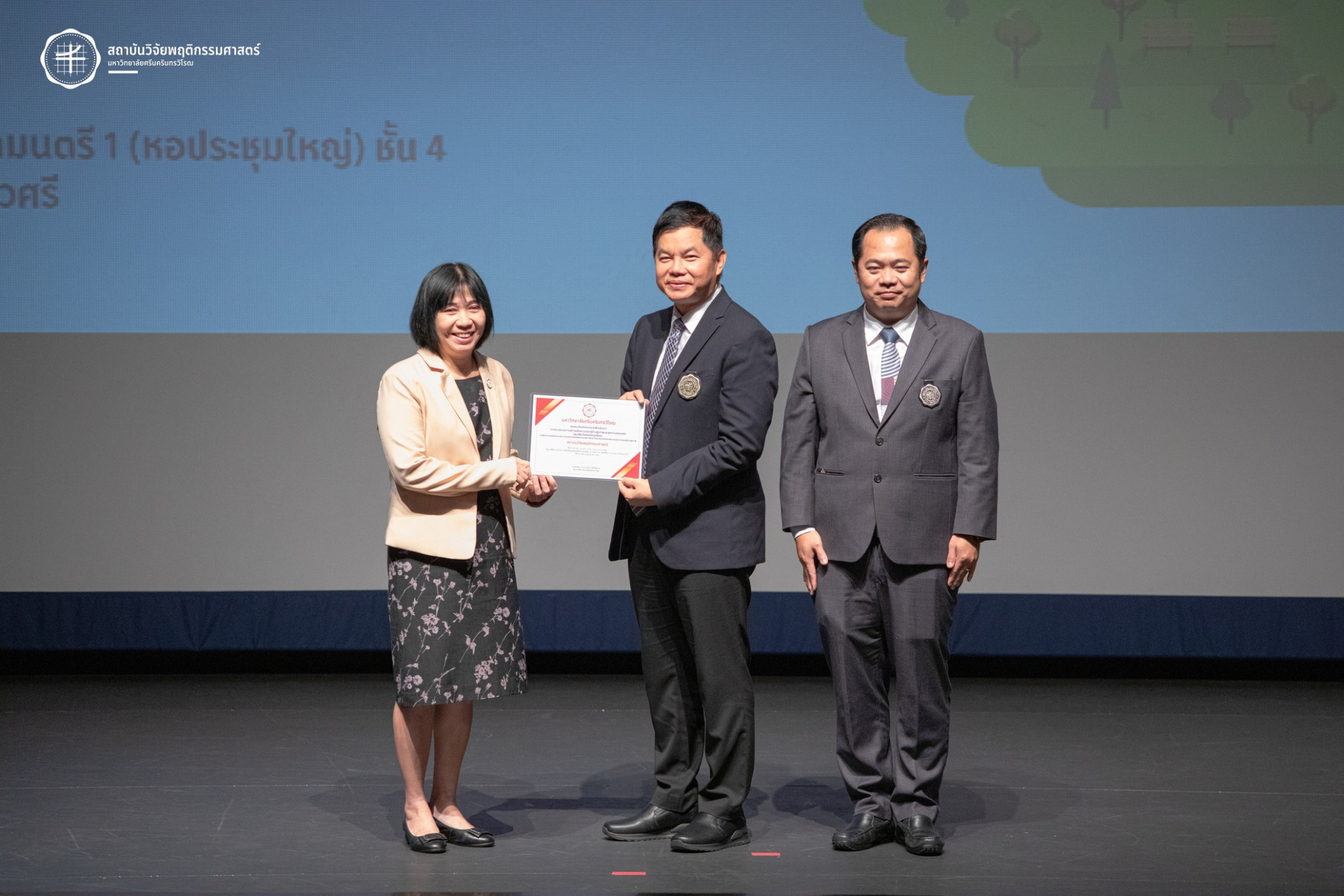





| Target | Indicator | Result |
|---|---|---|

SDG 4
QUALITY EDUCATION
|
||

SDG 8
DECENT WORK AND ECONOMIC GROWTH
|
||

SDG 9
INDUSTRY, INNOVATION AND INFRASTRUCTURE
|
||

SDG 17
PARTNERSHIPS FOR THE GOALS
|
||
The seafood processing industry in Thailand is facing a significant transition to Industry 4.0 and this sector is facing a skills mismatch and a skills gap. Therefore, this study aims to explore the characteristics of talent and how to utilize talent in the Thai seafood processing industry by focusing on two theories, the resource-based view and workforce development.
These studies had 2 phases and 2 publications
1. Sustaining Thailand's Seafood Processing Sector: Workforce Development
2. Causal Model of Talent Utilization, Engagement, and Performance among Employees in the Seafood Processing Industry
Phase 1: This study aims to explore the characteristics of talent and how to utilize talent in the Thai seafood processing industry by focusing on two theories, the resource-based view and workforce development. This study used the qualitative exploratory multiple-case study research method. The data were obtained from in-depth interviews and focus group discussions conducted with the participants, which consisted of 26 key informants, including civil servants, NGOs, executives in industrial factories, human resource managers, supervisors and talents. The results showed the characteristics of talent in five key aspects: (1) global mindset; (2) ability to work with data and technological skills; (3) problem sensitivity and complex problem-solving abilities; (4) entrepreneurial skills; and (5) personal and social skills. The aspect of talent utilization through the talent management system had three dimensions: (1) discovering and attracting the right talent at the right time with the right opportunity; (2) training and development to be modernized and keep up with the changes in industrial production; (3) retaining through employee well-being. The results highlighted the sustaining workforce development which was integrated into individual, organizational, and social levels. It can help to create a strong talent pool for a specific seafood processing industry, and the skills and abilities of employees can come close to the level of demand. In addition, it must support and develop people skills in the community and increase employment opportunities in rural areas.
Phase 2: The need exists to develop a causal model of talent utilization, engagement, and performance and its effect on engagement and performance among employees. A sample of 360 talented persons working with the leading seafood processing industry in Southern Thailand were selected through a purposive sampling technique. Data were collected from Likert questionnaires with reliability of 0.57-0.91 and analyzed using structural equation modeling (SEM.) The results of this research showed that the proposed model was fit with the empirical data, Chi-square = 191.21, p = .00, Chi-square/df = 2.690, RMSEA = .069, SRMR = .054, GFI = .93, CFI = .98, NFI = .97. The findings also indicated that causal factors had direct effects on performance including engagement and characteristics of talent (β = 68, t = 7.98) and (β = .32, t= 5.08). Moreover, the characteristics of talent and talent utilization had direct effects on engagement (β = .56, t = 10.14) and (β = .34, t = 6.86). The findings also illustrated that the characteristics of talent and talent utilization had indirect effects on performance (β = .38, t = 6.48) and (β = .23, t = 5.24). All factors could predict performance and engagement with a variance of .81% and .55 %. In practical terms, the results could be used by this industrial sector as a framework to improve performance. In addition to creating certain characteristics of talent, and utilizing this talent related with the context. Organizations could also build employee engagement levels through strong strategies, which lead to higher performance.
1. Global: Studying together with Professor Dr.Darin Hodgetts, a representative from Massey University, New Zealand, this time led to organizing a joint International Postgraduate Research Colloquium conference on the topic. "Psychological and Behavioral Contribution towards Achievement of Sustainable Development Goals (SDGs)" at Behavioral Science Research Institute (BSRI), Srinakharinwirot University (SWU) on 17 July 2023.
2. Global: There are 2 Publications with Prof.Stuart Colin Carr, and Prof.Amanda Young-Hauser from the School of Psychology, Massey University, Albany, New Zealand, and Funding for exchange Ph.D. students of BSRI, SWU.
2. Regional: This study thus aims to develop the workforce in the Thai Seafood Processing Industry in the context of Industry 4.0 by exploring the characteristics of talent and talent utilization, which is based on incorporating the perspectives of the stakeholders including foreign workers in factories in Southern Provinces. It helps to prepare for developing the workforce to be in line with the needs of the labor market which will be beneficial to individuals, organizations, society, and countries.
3. Developing countries: A global mindset is a cultural diversity, it is absolutely important for our organization because we are a big company in Thailand to produces seafood products and operates worldwide with plant facilities in foreign countries. Also, Thai industries interact with employees from other countries of at least three nationalities such as Laos, Burma, and Cambodia.
4. National: This is the starting point for developing the competitive potential of the Thai processed seafood industry in creating the characteristics of talent and utilizing talent that links to engagement and performance. By taking into account the specific type of industry and the context of development through Industry 4.0. In order to be able to apply to manage and develop talents to meet the needs of the labor market.
5. Local: A talented individual can be able to perform excellently to help the organization attain goals. The utilization of the talents of employees has been developed through a talent management system.
6. The results of this study have illustrated that by improving performance, in addition to creating certain characteristics of talent and utilizing this talent related to this context. The organization should also build employee engagement levels through strong strategies, which lead to higher performance outcomes. This is because employee engagement is a variable that strongly affects performance, rather than the characteristics of talent and talent utilization. Moreover, Patro (2013) supported that engagement is a complex idea that describes the emotional connection workforces have to their job. Highly engaged individual would want to do well in their role and help the organization’s success.



